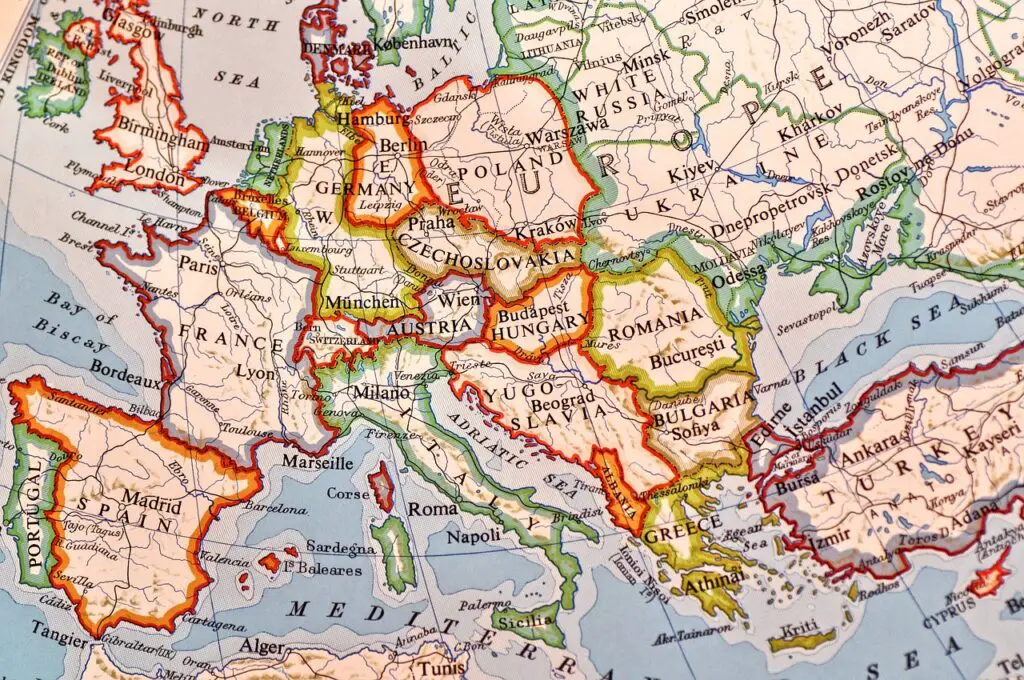The quest for self determination in 20th-century Europe was fraught with numerous challenges and complexities, many of which were deeply rooted in the historical and geopolitical context of the time.
The aspiration to determine one’s own political status and form of governance faced significant hurdles, and a closer examination of these problems provides a nuanced understanding of the self-determination struggles in the region.
1. Legacy of Colonialism:
One of the most profound challenges to securing self-determination in 20th-century Europe was the enduring legacy of colonialism. Several European empires had expanded their reach across the globe, colonizing and exploiting various territories. These colonial powers were often reluctant to relinquish control over these regions, leading to tensions and conflicts with nationalist movements striving for self-determination.
For example, the Algerian War of Independence (1954-1962) serves as a poignant illustration of this challenge. After 130 years of French colonial rule, Algeria sought independence. However, France was resistant to this transition, resulting in a protracted and bloody conflict. The legacy of colonialism created complex dynamics that hindered the self-determination process.

2. Rise of Nationalism and Ethnic Conflicts:
The 20th century witnessed a surge in nationalism across Europe, with various ethnic and linguistic groups asserting their desire for self-determination. While nationalism was a driving force behind the pursuit of self-rule, it also gave rise to conflicts between rival nationalist groups. These internal conflicts complicated the achievement of self-determination for all.
The breakup of Yugoslavia in the 1990s provides a stark example of this challenge. The region experienced violent and chaotic confrontations as different ethnic groups sought their independence. Nationalism, while a unifying force for some, became a divisive factor that made securing self-determination a turbulent process.
3. Impact of the Cold War:
The Cold War between the United States and the Soviet Union significantly influenced the self-determination struggles in Europe. Both superpowers vied for global influence and were often willing to support nationalist movements aligning with their interests. However, they were also hesitant to allow any country to drift outside their respective spheres of influence. This Cold War rivalry complicated the self-determination efforts of countries in Central and Eastern Europe, as they found themselves entangled in this geopolitical struggle.
4. Specific Challenges in Different Regions:
In addition to the overarching challenges, specific regions in Europe faced distinct obstacles in their pursuit of self-determination:
- Ireland: Overcoming British resistance to independence was the central challenge. The Irish War of Independence (1919-1921) was a protracted and violent conflict, but it eventually resulted in Irish independence.
- Central and Eastern Europe: These regions grappled with the domination of the Soviet Union after World War II, which led to the establishment of communist governments. They could not achieve genuine independence until the collapse of the Soviet Union in 1991.
- The Balkans: Ethnic conflicts posed a significant challenge. The breakup of Yugoslavia in the 1990s was marked by violence and chaos as different ethnic groups fought for their independence. These conflicts resulted in substantial loss of life and mass displacement.
Despite these formidable challenges, substantial progress was made towards securing self-determination in Europe in the 20th century. The collapse of the Soviet Union in 1991 ushered in independence for many Central and Eastern European countries. Today, the majority of European nations are self-governing and independent.
However, the challenges persist. Ongoing conflicts in Ukraine and Georgia involving separatist movements striving for independence demonstrate that the quest for self-determination remains relevant. Additionally, concerns about the resurgence of nationalism and populism in certain European countries raise questions about the future of self-determination on the continent. These contemporary trends could potentially pose a threat to the hard-won self-determination of the 20th century.
Egyankosh ebook : MPS-002 International Relations: Theory and Problems
